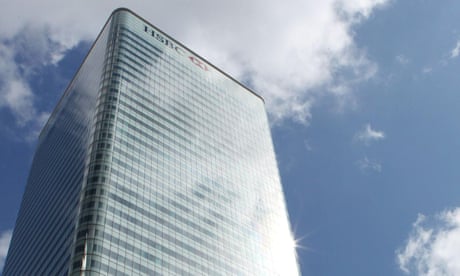EASTER is as good a time as any to recall Rev Jeremiah Wright’s admonition of the American political class. The noxious attack on Delhi’s premier Jawaharlal Nehru University by Delhi Police and their Hindutva cheerleaders is another fine reason to remember the pastor who baptised President Obama’s children but remains in bad odour with the right-wing political class in his country.
In a powerful sermon, he illustrates how to criticise your country and not be lynched or jailed. His slamming of America is not rooted in hatred of his country but in his love for its people as he loved people everywhere. Pastor Wright, like other ordinary people, does not have a nationalist bone.
War, he told a congregation not too long ago, does not make for peace. “Fighting for peace is like raping for virginity…When your wife or your children have been crushed by the enemy, when your mother or your father have been mowed down by the military, peace is not on your mind. Payback is the only game in town.” Are Jeremiah Wright’s words subversive for our region?
“Occupying somebody else’s country doesn’t make for peace. Killing those that fought to protect their own homes does not make for peace … We confuse government and God…We believe God sanctioned the rape and robbery of an entire continent. And [they want] us to sing ‘God Bless America.’ No, no, no. Not ‘God Bless America’; God Damn America! That’s in the Bible, for killing innocent people!” It’s a long speech.
Many Americans strongly disagreed with Jeremiah Wright. President Obama distanced himself from his sermons in an election year. But no statute or law book was thrown at him, nor was he harassed or threatened with lynching as happens in India these days. The object lesson here is that America can be accused of a million wrongs, but it remains a confident democracy that allows for dissent at home, though not be always abroad.
The Wright example is relevant for India as last week’s assault on JNU came from an insecure state that is not confident enough to take sharp criticism. The assault, ostensibly invited by some Wright-like words, triggered a heavy bout of nationalist fervour. Sadly, every party, from the left to the right, was pleading to be counted as nationalist as if that would save anyone from the state’s insidious rightist trap.
Nationalism, which Wright shunned, has traditionally been a sly, opportunistic, street-smart, malleable idea, which doesn’t do any good to any society coming under its sway. But it has always been useful for the national elites more or less everywhere, since decades. Ziaul Haq claimed to be a nationalist, so did his quarry, Z.A. Bhutto. Musharraf and Nawaz Sharif, ditto. Mujib and Ziaur Rehman likewise. Hitler rode to power on nationalism, and with him his trusted aide Ernst Rohm. However, when Rohm, the head of the dreaded Nazi SA, posited that socialism in National Socialism was as important as nationalism, Hitler got him shot.
Nehru was instinctively an internationalist, but opposition pressure turned him into a nationalist albeit grudgingly, with soft hands. Then Narendra Modi arrived and declared the first prime minister as the harbinger of the nation’s dark ages. By implication, Nehru was India’s essential foe. Modi struck up a conversation with Bangladesh while assiduously hiding away the role of Indira Gandhi in its creation. Gandhi had shored up the idea of Bangladesh to claim her own nationalist baton. Modi has striven to steal her thunder but may not succeed.
His stated objective in this endeavour is, therefore, to finish off the Congress, to weed out from the roots India’s original beacon of nationhood, and, not unknowingly, supplant it with the nationalist fervour of Hindutva’s lynch mobs.
To this end Modi took into confidence the audiences in Beijing about the plot. Indians, he told the world through them, without naming names, were living a life of inferiority complex under decades of Nehru-Gandhi rule. With his advent they had got back their spine.
That spine was in evidence last week in JNU, India’s premier institution of high academic interface with the world. Calls for shooting JNU’s leftist students could be an example of the reinforced spine. Shut down the university counselled another Hindutva acolyte. The agenda to dismantle the “hub of leftism”, of course, precedes by decades last week’s meeting of some as yet unidentified students to commemorate an executed Kashmiri militant.
The Afzal Guru meeting became a ruse for a terrifying police invasion of the campus. The student leader picked up for grilling is a Marxist and it is not his politics to slam the Indian state as Rev Wright would. That may not help though. The Hindu right is hunting for communists, not Kashmiri separatists who the army takes care of.
Therefore, perhaps the most tragedy-prone nationalists anywhere today are India’s communists, not the least because they were never cut out for the job. Their creed up until early 1990s was internationalism. Then they seemed to have run out of foreign partners.
Of the internecine communist battles the world over, two or three mannerisms are staple: brotherly greetings, marginalisation of former comrades and debunking of each other. Their task was to dismantle an unequal world, but Indian communists turned the challenge into a game of blind man’s bluff. Having ground down each other more viciously than they ever did their class adversaries they have unwittingly exposed themselves to the state’s vicious moves against them, as sitting ducks. What happened in JNU had much to do with that.
Jeremiah Wright’s sermon could yet guide the comrades to their old self-assured internationalism, and wean them away from an ill-fitting nationalist makeover. Happy Easter, comrades.


